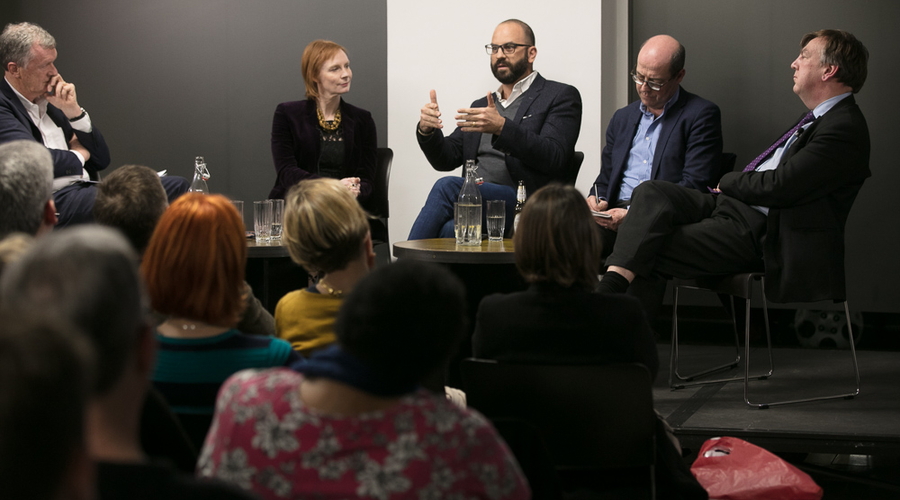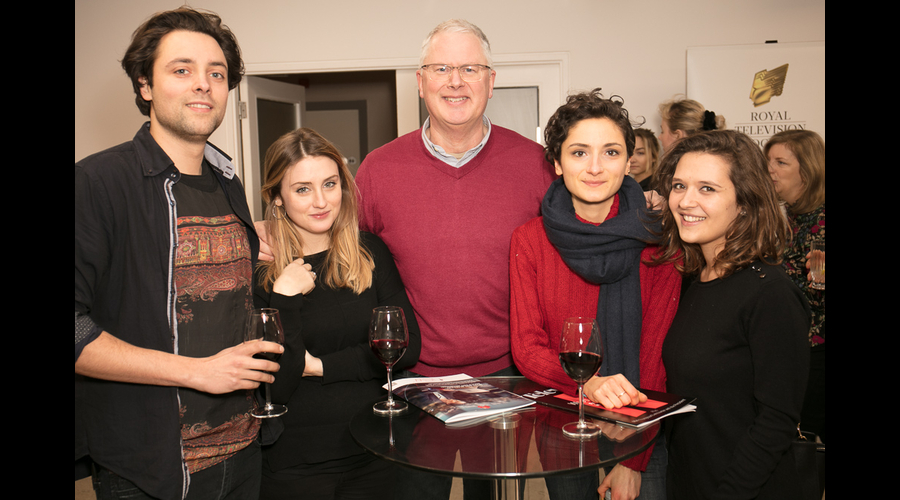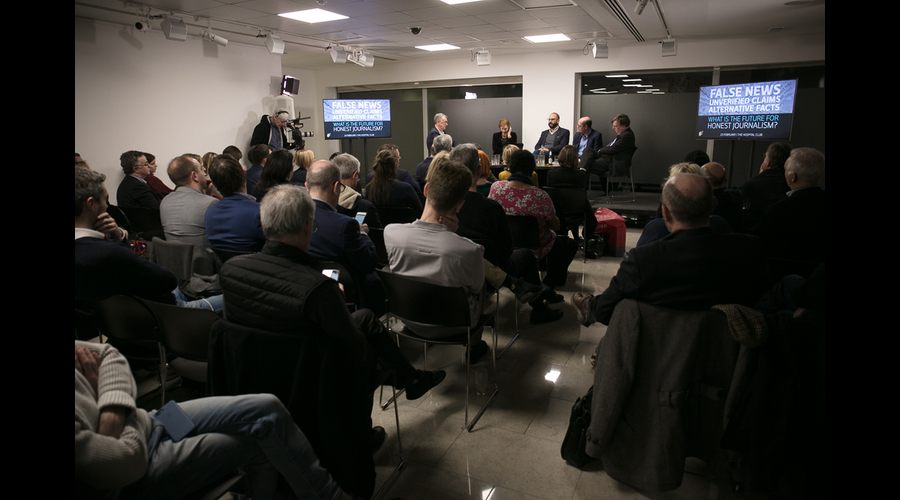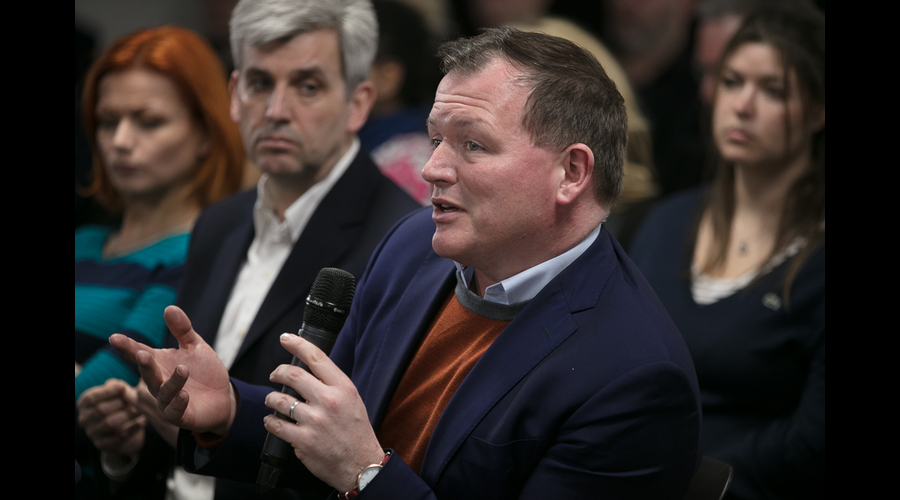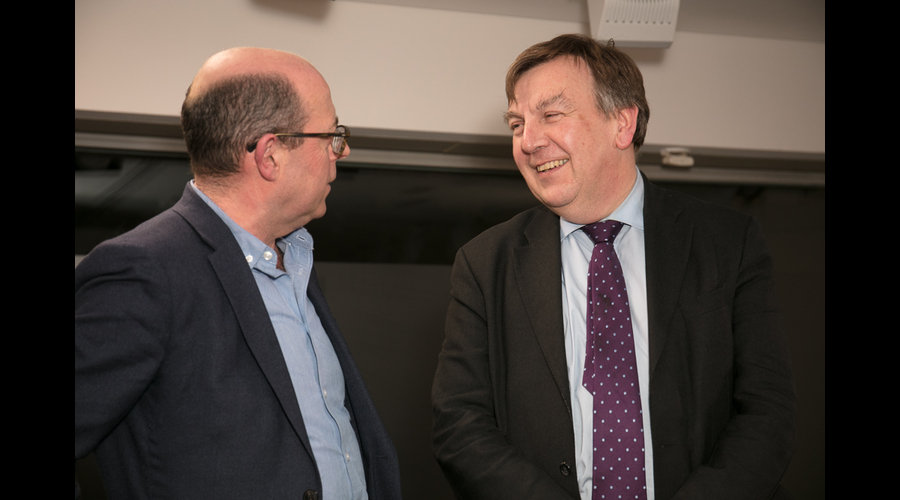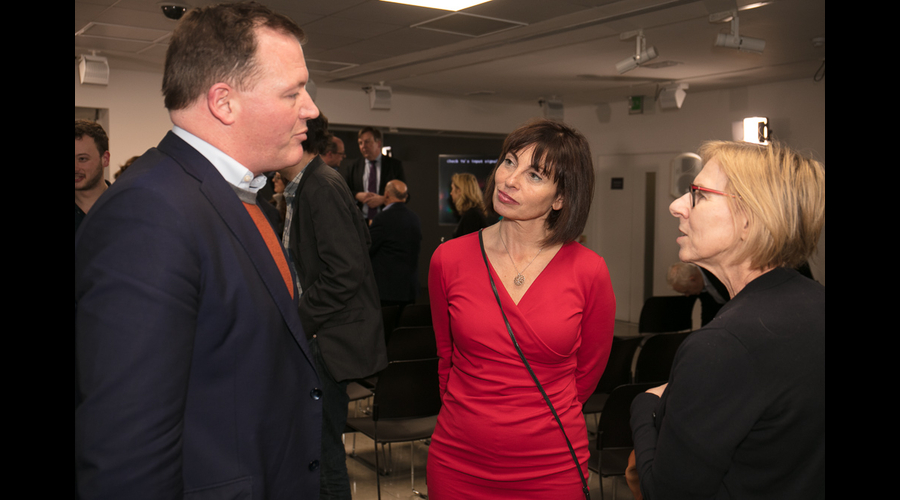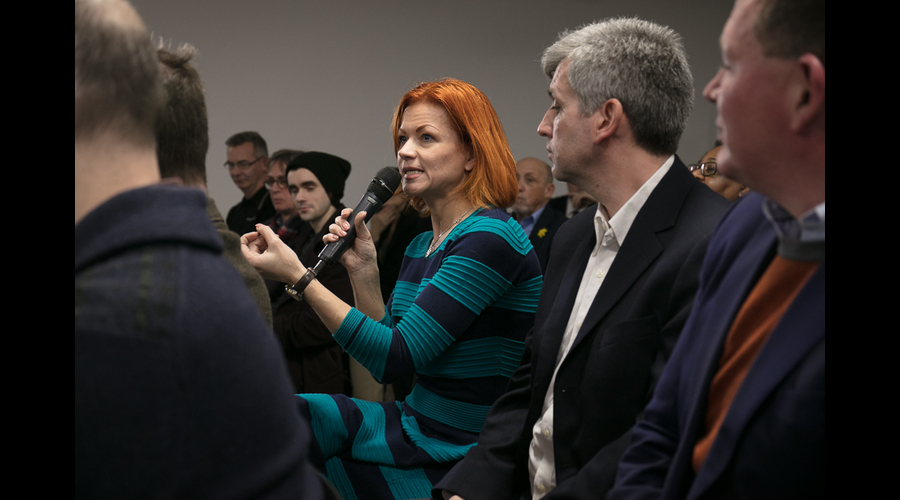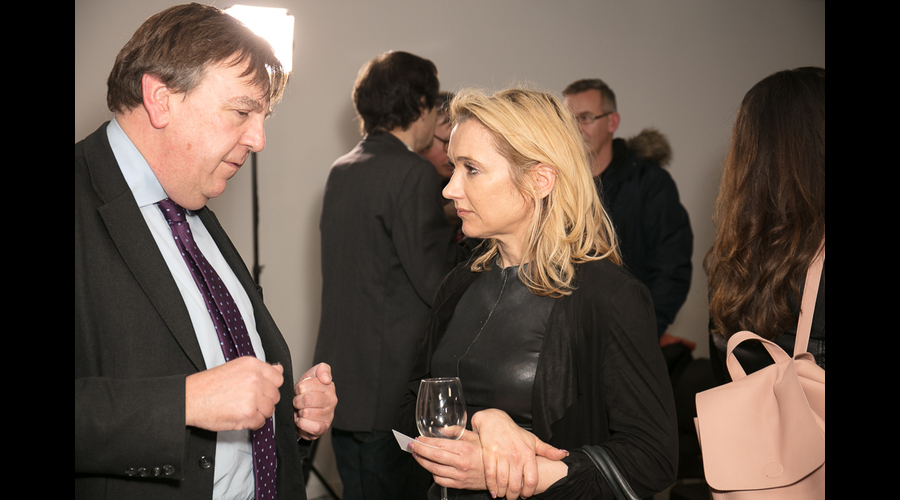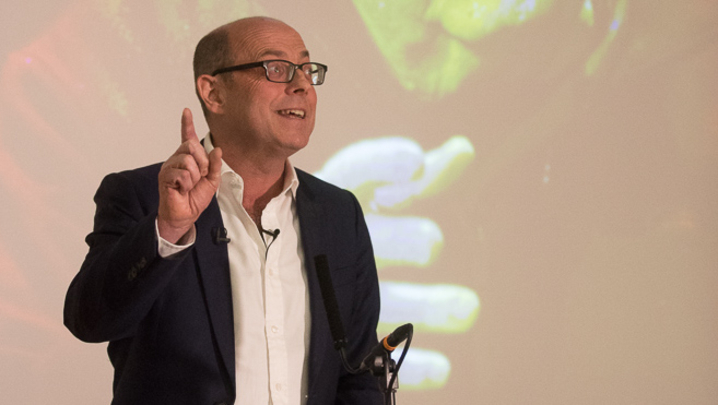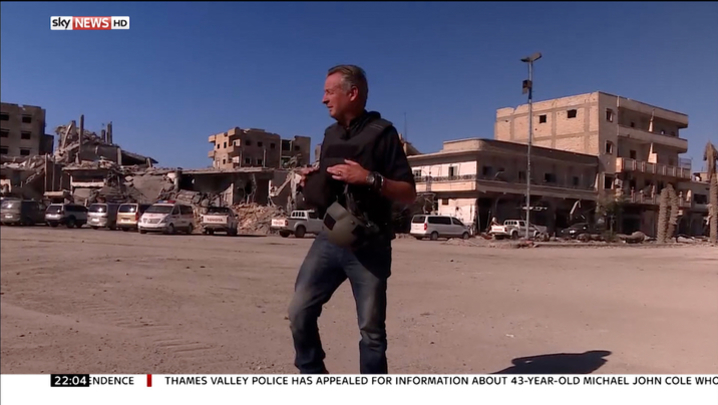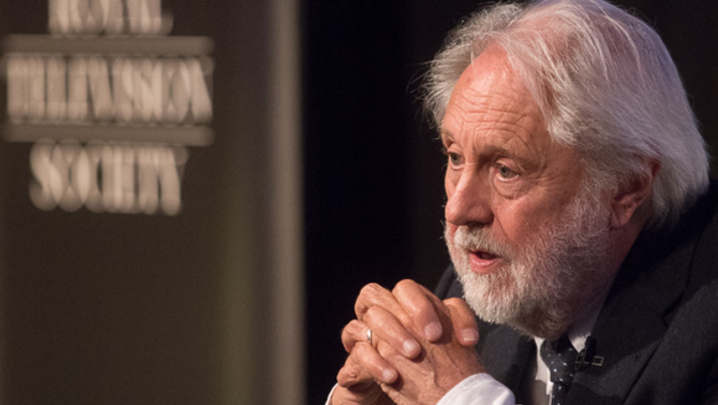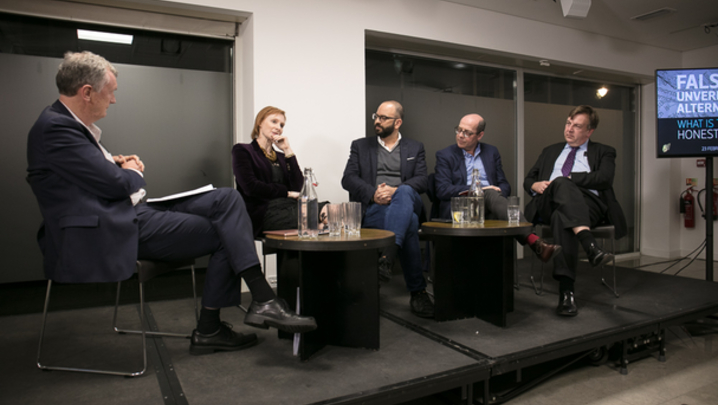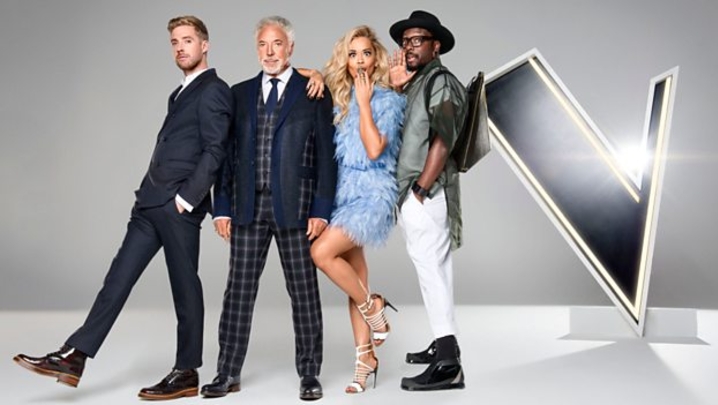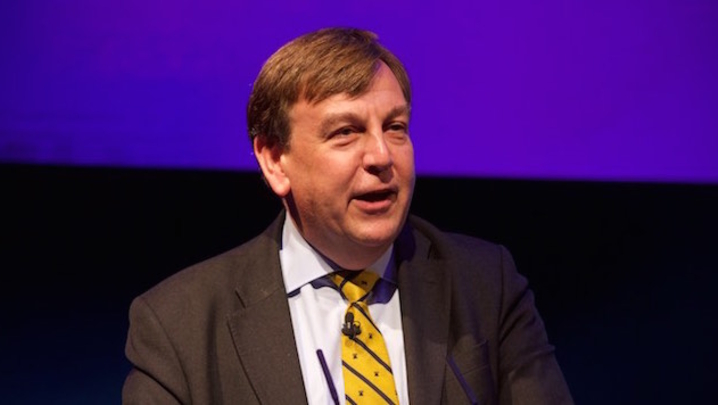“Any politician who uses the words ‘fake news’ to describe something they don’t like from their opponent should be assaulted verbally by people in their own party and fellow parliamentarians – we have to fight for language,” Nick Robinson told an RTS early evening event discussing false news and alternative facts.
Robinson, a presenter on BBC Radio 4’s Today programme, argued for “impartiality as a legal requirement for television news”. Without it, as in the US where “right wingers watch Fox News and liberals watch MSNBC”, he continued, “there are no shared facts. Good public policy decision-making requires shared facts.”
“What Facebook does, and what separate news channels for different opinions do, is give people the possibility to have their own facts,” added Robinson, a former political editor at both ITV News and the BBC.
“I don’t see anything wrong with partiality. The Daily Mail presents a particular type of view – you buy it knowing what that point of view’s going to be,” said fellow panellist and Conservative MP John Whittingdale, the former culture, media and sport secretary.
“I would have no objection to someone starting a left- or right-wing TV channel if they brand it as that.
“What I do want is to have somewhere for people to go where they can be pretty confident that it will not have a political perspective and will be impartial,” he continued.
Whittingdale added that he believed in “plurality”. These impartial news sources would include “the BBC, ITV and I hope still the major broadsheets”.
Since the election of Donald Trump to the US presidency, social media platforms and, in particular, Facebook has been accused of doing too little to stem the flow of fake news.
Journalist Anne McElvoy, a senior editor at the Economist and a newspaper columnist, argued that the problem was that Facebook “are editors but you just don’t want to admit it”.
Facebook’s initiative to “flag” fake news with the help of news organisations and users, “was not a bad idea”, she said, “but the one thing I would predict is an awful lot of flags. Almost everything I’ve written would be flagged. [People] will just decide that they don’t like something [and flag it].”
Addressing fellow panellist Patrick Walker, Facebook director of media partnerships, McElvoy called on the social media giant to “invest a bit more in journalism. Get off the fence and think about whether you should be supporting public interest journalism.”
“We’re fundamentally dependent on good journalism, [but] we don’t think the solution is to write cheques to journalists,” responded Walker. He argued that the Facebook Journalism Project, which attempts to build stronger links between Facebook and news organisations; train journalists in using Facebook tools; and improve digital literacy was an appropriate response.
“You’re clearly spending money on lots of related projects, but is the reason you don’t want to spend the money on journalism because people will say, ‘They are publishers?’” asked Robinson.
Likening the quantity of fake news to an “extraordinarily large pipe of sewage”, Channel 4 marketing and communications chief Dan Brooke, who was in the audience at the sell-out RTS event, said he could not “understand why the social media platforms, and Facebook in particular, are being so complacent” about fake news. “I publicly said before Christmas that I thought you were fiddling while democracy burns.”
“It’s quite easy to blame the big platform when there are all sorts of fundamental challenges occurring across society,” replied Walker. “We’re deeply committed to creating technological tools and working with third parties to try and find solutions.”
From the audience, Damian Collins MP, chair of the culture, media and sport select committee, said: “We have to look at online content because it’s clear that people don’t always find it very easy to distinguish between fake news and real news.
“One of the things I’m particularly [concerned] about what Donald Trump is doing at the moment is using the label ‘fake news’ to [dismiss] any news that he doesn’t like.
Robinson concluded the event with a challenge to the online companies to help their users “find the facts”, rather than “just following people you already blooming well agree with”.
He continued: “When people have a massive decision to make, like whether we should stay in or leave the EU, there [should be] somewhere on these sites where they can get facts.”
The RTS early evening event, “False news, unverified claims, alternative facts: What is the future for honest journalism?” was held at the Hospital Club in central London on 23 February. The event was chaired by Stewart Purvis and produced by Sue Robertson and Martin Stott.

